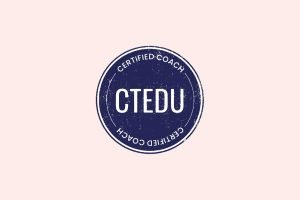Last updated on February 6, 2024
Powerful questions are the secret sauce in coaching. They can lead to breakthroughs and help you shape your coaching approach to each individual. That’s why the GROW model coaching questions are one of the most common coaching frameworks, and why we’re dedicating this article to the GROW model.
Find out what the GROW model framework is and how to use powerful questions to support it. Let’s dive in!
Table of Contents
What Is the GROW Model Framework?
The GROW model is a highly popular coaching and problem-solving framework that assists in running more effective sessions through setting and achieving goals. It was developed by Graham Alexander, Alan Fine, and Sir John Whitmore in the 1980s and is widely used in coaching, mentoring, and performance management.
The purpose of the GROW model is to provide a structured framework that encourages individuals to think critically, take ownership of their goals, and develop actionable plans for success.
The acronym GROW stands for:
- Goal Setting (G): This phase involves defining and clarifying the specific goal or objective that the individual wants to achieve. The goal should be SMART (Specific, Measurable, Achievable, Relevant, Time-bound).
- Reality (R): In this stage, individuals assess their current situation and the reality of the circumstances surrounding the goal. It involves an honest and objective analysis of the present, including strengths, weaknesses, opportunities, and threats.
- Options (O): Once the goal and current reality are clear, individuals develop different strategies and options to achieve the goal. This step can involve brainstorming and considering different approaches, actions, and solutions.
- Will Do/Way Forward (W): The final step is to establish a concrete action plan or way forward. Individuals determine specific steps, set deadlines, and outline the resources and support they need to achieve their goals. It’s all about creating a practical and achievable roadmap to success.
What Are the GROW Model Questions?
The GROW model incorporates asking specific questions at each stage to guide individuals through the goal-setting and problem-solving process. These questions ensure that you lead structured conversations and encourage reflection, planning, and commitment. Since the effectiveness of the GROW model depends on the dialogue between the coach and the individual, asking the right GROW model questions is imperative.
Why Use the GROW Model Coaching Questions in Life Coaching?
The GROW model coaching questions provide a systematic framework that supports clients in setting realistic and achievable goals. With this approach, you can help them clarify what they want, assess their current realities, lay out different options, and create actionable plans—all of which are essential for success in coaching.

Moreover, the questions inspire action and empowerment, so clients get a sense of ownership, accountability, and commitment to their coaching transformation. The GROW model is very versatile and adaptable to different life coaching scenarios, so it can be used in any coaching niche.
Grow Coaching Model Examples of Questions
The GROW model doesn’t work without the right questions, so here’s an extensive list of questions for each stage that you can use in your sessions. In case you want to further inform yourself about the GROW model, you can download this free comprehensive guide by The Coaching Tools Company.
Goal Setting (G)
The purpose of these questions is to establish a clear, specific, and achievable goal that will set the foundation for the coaching process.
- What is a significant goal you would like to focus on in our coaching sessions?
- How does achieving this goal align with your broader life objectives?
- Can you describe the specific outcomes you hope to achieve with this goal?
- In what ways will reaching this goal positively impact your life?
- How will you measure success in accomplishing this goal?
- What does success look like to you concerning this particular goal?
- How does this goal align with your values and long-term vision for yourself?
- What motivated you to choose this goal at this particular time?
- Are there any potential challenges or obstacles you foresee in pursuing this goal?
- How committed are you to achieving this goal on a scale of 1 to 10?
Reality Checking (R)
With these questions, you’ll gain a realistic understanding of the client’s current situation and identify their strengths, weaknesses, opportunities, and potential barriers.
- What is your current reality in relation to the goal you’ve set?
- How would you describe your current strengths and capabilities in this area?
- What aspects of your current situation support progress toward your goal?
- Are there any patterns or behaviors that may be hindering your progress?
- What resources, skills, or support do you currently possess that can help you?
- How do external factors or circumstances impact your ability to work on this goal?
- In what ways have you attempted to address this goal in the past, if at all?
- What have you learned from past experiences that can inform your approach now?
- How does your current reality align with or deviate from your initial expectations?
- What are the most significant challenges you anticipate facing in pursuing this goal?
Options (O)
In this stage, you’ll develop and evaluate various strategies and approaches to achieve the goal, with a focus on inspiring creativity and open-mindedness.
- What are different ways you could approach achieving this goal?
- Can you brainstorm a list of potential actions or steps you could take?
- How have others successfully achieved similar goals, and what can you learn from them?
- Are there unconventional or creative approaches you could consider?
- How do the options you’re considering align with your values?

- Which options energize you the most and feel like a good fit for your personality?
- What are the potential benefits and drawbacks of each option?
- How might you adapt or combine different options to create a unique approach?
- Which option aligns best with your strengths and preferences?
- What resources or support will you need to pursue each option?
Way Forward (W)
Lastly, you want to create a concrete action plan and establish specific steps, deadlines, and accountability measures.
- What specific actions will you take to move closer to your goal?
- How can you break down your goal into smaller, more manageable steps?
- What is your timeline for completing each step of your action plan?
- How will you stay motivated and focused throughout the process?
- How can I (the coach) and other people in your life provide support, guidance, or accountability as you work toward your goal?
- How will you measure progress and celebrate small victories along the way?
- What potential obstacles do you anticipate, and how will you overcome them?
- How flexible is your plan, and how will you adjust it if circumstances change?
- In what ways will you hold yourself accountable for following through on your plan?
- What resources or tools can support implementing your action plan?
Conclusion
Coaching and the GROW model have a shared principle, and that’s asking timely and effective questions. Maybe you’ve already been using a GROW model (in one way or another) without even being aware of it, but now you can have a structured approach to applying the GROW model framework. The possibilities are endless with this model, and you can continue exploring its benefits in this guide by The Coaching Tools Company.
The Life Coach Magazine staff is your team for high-quality content on topics from personal development, to coaching tips, to how to grow your coaching business.

















Be First to Comment